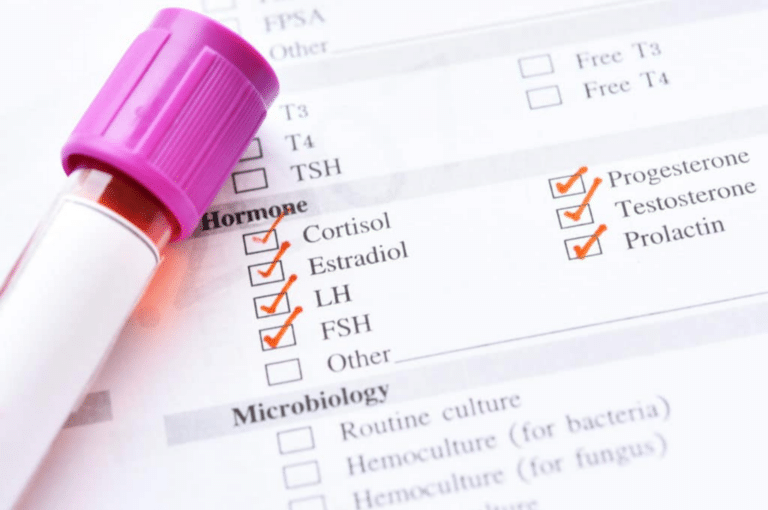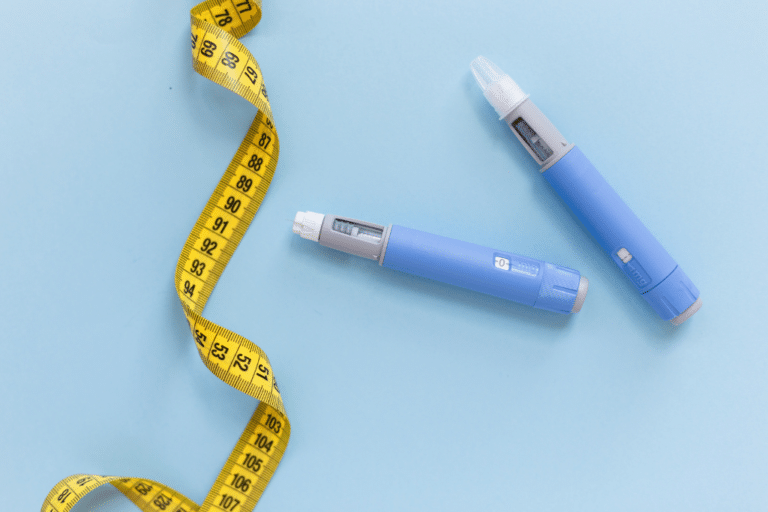Women are becoming much more savvy about perimenopause and menopause symptoms now that menopause is having a “moment” in the press. They’re learning how hormone changes can make them feel and going to their doctor to get their hormone levels tested to understand what’s going on and get targeted therapy prescribed.
But instead of getting help, they’re getting pushback from their doctors.
Why might your doctor refuse to test your hormone levels?
Common objections can include one or ALL of the following:
- You’re too young to need hormone replacement. (if you’re experiencing symptoms, SOMETHING is off!)
- Your hormones are supposed to be low at your age, so there’s no need to test. (but they can still be out of balance)
- Your symptoms are just part of aging, and there is nothing you can do. (NOOOOO)
- Hormone levels vary “wildly,” so testing them isn’t helpful. (so does blood sugar, but we make clinical decisions using it all the time)
Whenever I hear one of these reasons, my eye roll goes wild. Want to know the REAL reason they’re not testing? They don’t know what to do with the results.
Doctors get very little education on menopause.
You can read more about that here. Add to this that the average time goal for medical visits is 7 minutes. How can you possibly have a good conversation about hormones in 7 minutes? The easiest thing to do for you is to write you a prescription for antidepressants, birth control, or anti-anxiety medications and show you the door.
If they don’t have training for the basics, then they surely aren’t trained to understand the different types of hormone testing and how to match these up with your symptoms to create a plan just for you. When you think about it, would you want your doctor prescribing meds for diabetes or high blood pressure without knowing what your blood sugar or blood pressure is? I wouldn’t.

Want relief from the symptoms of perimenopause?
You’re in the right place.
You don’t have to suffer. I can help you balance your hormones and get your mojo back!
Types of Testing
There are several types of hormone testing, each of which has pros and cons.
DUTCH Test
My personal go-to is the DUTCH test. The amount of information that comes from this test is incredible. Not only do we see the amount of hormones secreted in urine, but we also see the pathways the body uses to break those hormones down. If a certain pathway is inefficient, we can address that. We also get a deep dive into cortisol and a selection of organic acids that can point to problems with nutrient metabolism, neurotransmitters, or gut health. This type of testing is good for establishing baseline levels of hormones, but should not be used to follow the use of topical progesterone.
It is generally not covered by insurance.
In this video, I review my own DUTCH results.
Saliva Testing
Saliva testing is also useful for establishing a baseline. It measures unbound sex hormones (the percentage that is active at the receptor level) but does not show metabolic pathways. The test also measures cortisol, which some consider the gold standard for cortisol measurement. Again, its biggest drawback is that topical progesterone levels are unreliable on follow-up testing.
Again, it is unlikely to be covered by insurance.
Serum Testing
Serum hormone testing is the most common testing method, largely because it is likely to be covered by insurance. However, it does not give information on hormone metabolites and is impractical for getting a complete picture of cortisol, as this takes 4-5 measurements throughout the course of a day. Follow-up levels of topical progesterone may appear falsely low, which can lead to potential overdosing of progesterone.
If your doctor is unwilling to measure your hormones, it may be time to take your health into your own hands. I offer a variety of services related to hormones and testing that you can learn more about here, and I’d be happy to chat with you about your unique situation and how best to approach it. You can schedule a consultation at www.drannagarrett.com/lets-talk.
Dr. Anna Garrett is a menopause expert and Doctor of Pharmacy. She helps women who are struggling with symptoms of perimenopause and menopause find natural hormone balancing solutions so they can rock their mojo through midlife and beyond. Dr. Anna is the author of Perimenopause: The Savvy Sister’s Guide to Hormone Harmony. Order your copy at www.perimenopausebook.com.
Dr. Anna is available for 1-1 consultation. Find out more at www.drannagarrett.com/lets-talk




